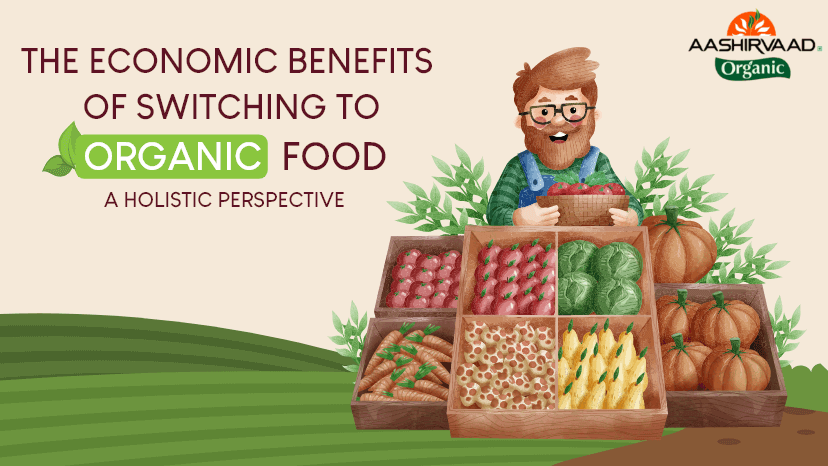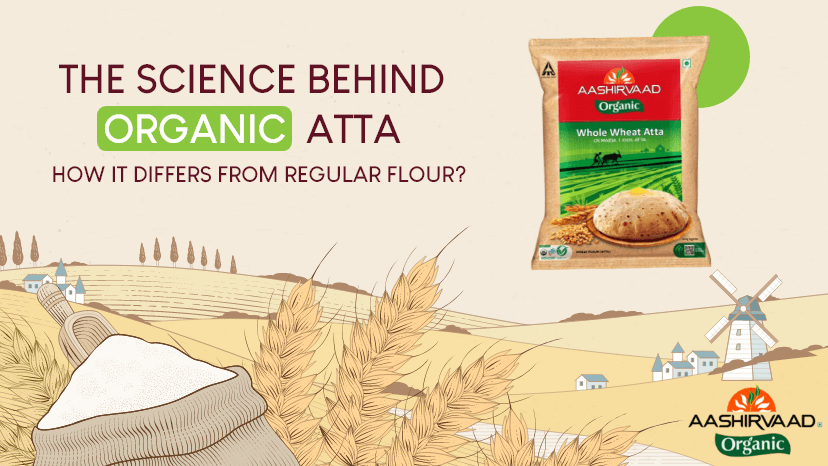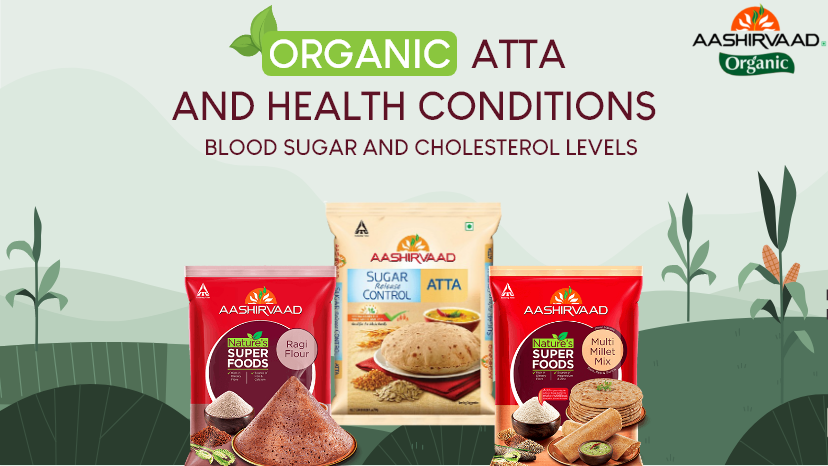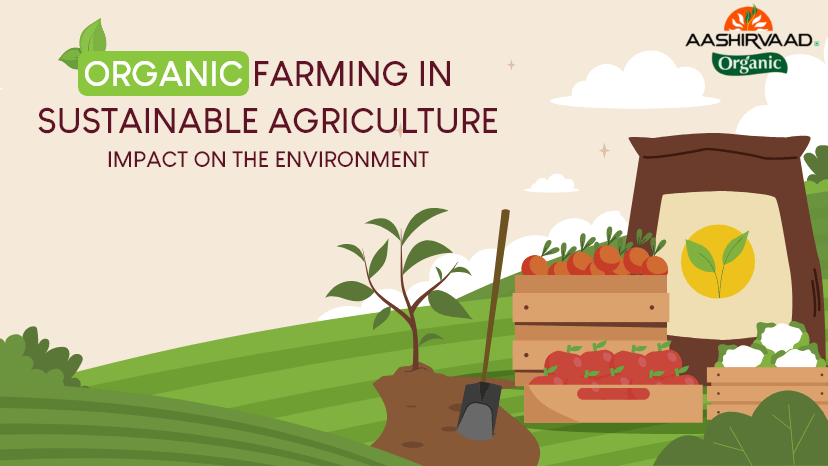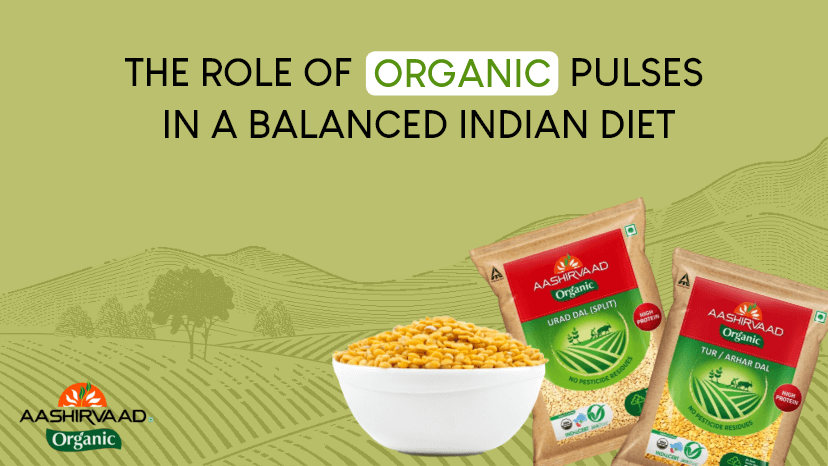Food production plays a fundamental role in our lives, impacting our well-being, the environment, and the taste of the meals we enjoy. Lately, a significant debate has emerged regarding the merits and demerits of organic farming versus conventional methods. In this blog post, we’ll delve into the essential distinctions between these farming approaches and how they influence our health, the environment, and the flavours on our plates.
1. Advantages of Organic Farming
- Sustainability: Organic farming revolves around sustainable practices and animal welfare, emphasizing natural fertilizers while steering clear of synthetic chemicals and pesticides. Techniques like crop rotation, intercropping, and companion planting are employed to maintain soil nutrients and manage pests and weeds naturally. One of the significant advantages of organic farming lies in the reduced presence of harmful chemicals in our food. For example, At Aashirvaad Organic, every batch of produce is rigorously tested for 217 chemicals and pesticides, ensuring that what reaches your home is 100% pesticide-free.
- Better Taste: Interestingly, many consumers prefer the taste of organic produce, often finding it fresher, less processed, and more flavourful. This stems from the absence of synthetic pesticides and fertilizers, allowing the natural essence of the produce to shine through. Furthermore, embracing organic food can also have a positive impact on local farmer communities, fostering a more sustainable food future.
2. Conventional Farming
Conventional farming, in contrast, relies on synthetic fertilizers, pesticides, and genetically modified organisms (GMOs) to boost crop yields. It excels in efficiency, producing more food per acre compared to organic farming. Conventional farmers leverage technology like irrigation, precision agriculture, and electronic monitoring to optimize crop production.
However, conventional farming carries environmental and health concerns. The use of synthetic pesticides and fertilizers can harm soil, water quality, and wildlife. Additionally, questions persist about the potential adverse effects of GMOs on human and animal health.
Some argue that the use of synthetic fertilizers in conventional farming might impact the flavour of produce, suggesting it may not be as tasty as its organic counterparts.
In conclusion, choosing between organic and conventional farming depends on personal values and priorities. Those prioritizing environmental sustainability, animal welfare, and healthier eating may lean towards organic farming. Meanwhile, those emphasizing efficiency and maximum food production may favour conventional methods.
Regardless of your preference, being conscious of the impact of your food choices on health, the environment, and the food industry is crucial. Opting for high-quality food products from trusted sources ensures you’re making healthy and eco-conscious choices in your food selection. So, the next time you prepare your rotis, try Aashirvaad Organic Whole Wheat Atta for a superior taste, unmatched quality, and a sustainable future for both you and the environment!
 6m read time
6m read time 
